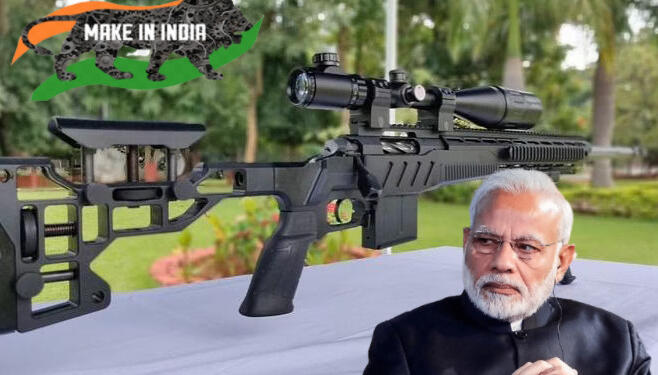According to The Print, sources have said that SSS Defence, a Bengaluru-based small arms firm, has managed to beat Israeli firm Fab Defense, also called Zahal, to bag a contract for upgrading a limited number of AK-47 rifles in service with a unit of the Indian Special Forces. The Indian Army and security forces are one of the largest users of the Kalashnikov rifles, and different units of the Army have been upgrading the AK-47 rifles to suit modern warfare. As per The Print, a source said, “This is the first time when an Indian company, with its own indigenous design and product, will upgrade a rifle for the Indian Army.” Till now, Fab Defense had a monopoly over upgrading AK-47 rifles for different units of the Indian Army.
SSS Defence has managed to stage a major turnaround in the Indian rifles market. However, this is just the tip of the iceberg as Karnataka-based companies are now coming together for the indigenization of India’s defence manufacturing sector.
Karnataka- the state with an ambition to lead India’s aerospace & defence manufacturing sector:
In an interview with Khaleej Times, Murugesh Nirani, Minister for Large and Medium Scale Industries, Government of Karnataka, said, “Karnataka is planning to release the updated Aerospace and Defence Policy 2021-26 with an aim to attract a $6-billion investment and generate additional employment for 60,000 people.”
Karnataka started focusing on making it big in the aerospace & defence manufacturing sector much before Prime Minister launched the Atmanirbhar Bharat campaign. At Aero India 2017 at Yelahanka Air Force Station, several small and medium-sized businesses found an opportunity to showcase their capabilities to domestic and foreign players.
Even during the two-day Make in India — Karnataka conference in 2017, the then Defence Minister late Manohar Parrikkar had said, “The defence ministry has for the first time agreed that the private sector can also manufacture for the services.” This was a subtle hint that aerospace & defence manufacturing could be the next big thing for Karnataka based startups and other tech firms.
How big is Karnataka’s aerospace and defence manufacturing sector:
Bengaluru is the only Indian city that finds a spot in the top 10 aerospace cities’ list compiled by fDi Intelligence, a specialist division of Financial Times.
Presently, Karnataka accounts for over 65 per cent of India’s aerospace-related exports. Karnataka also contributes two-thirds of the aircraft and helicopters manufactured for the Indian defence services.
Moreover, the state of Karnataka offers a robust support system for aerospace & defence manufacturing. Bengaluru, for example, is the largest chip design hub in India and also produces 60 per cent of India’s machine tools, which is necessary to support defence manufacturing and promote innovation.
Karnataka’s technological advancement helps it achieve growth in defence manufacturing:
Bengaluru is India’s IT hub and Karnataka has emerged as a leader in many technologies like big data, artificial intelligence, robotics, augmented reality, quantum computing and quantum cryptography. The integration of these
technologies with defence manufacturing are helping Karnataka prepare defence appliances that will be suited to the needs of future warfare.
As a part of its efforts to reduce the time taken in the production of sophisticated defence equipment, Karnataka is also relying on additive manufacturing technology. This involves using 3D printers to use printed parts in aircraft and other defence equipment. This helps reduce dependence on a traditional supply chains system, which reduces costs and also cuts down manufacturing timeliness
Karnataka has taken several initiatives to promote additive manufacturing including setting up of 3D printing clusters and other measures like according grants to Belgaum-based startup ‘Deltasys E-Forming’ to develop large-format hybrid composite 3D printers. Karnataka is also partnering with French software provider Dassault Systemes to set up four 3D experience innovation centres in Raichur, Bellary, Bidar and Yadgir. With this, Karnataka is looking to create a skilled workforce in additive manufacturing and mechatronics in aerospace & defence manufacturing.
Karnataka’s technological prowess can help it develop next-gen weapons like AI-enabled combat drones, which will power India’s ambitions of turning itself into a global hub for manufacturing arms and other military hardware. Karnataka’s contribution towards India’s “Atmanirbhar Bharat” campaign in the defence sector is thus outstanding and exemplary.
























